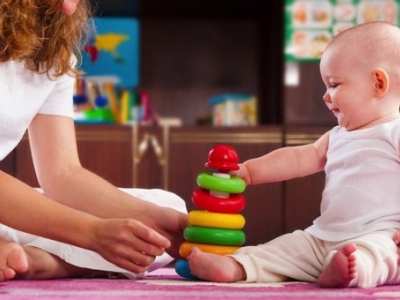
What makes a good mothering community?
Finding a supportive community to join you in your parenting journey.
Have you ever considered why it’s so common for stay-at-home Mums to talk about feeling isolated or lonely? How often do we go back to work because “I just needed some adult conversation”?
We diagnose the problem as a woman losing herself in the midst of early parenthood. And the solution presents itself as finding something – whether work or hobby – to reclaim her identity and remind her that she is someone apart from “Mum”.
However, I’m convinced our problem is often not a lack of personal identity, but a lack of community identity.
A cultural difference
Recently I was having a chat with my friend Anita, who comes from India. She was telling me how much of a shift it has been for her going from community-based life in India, where there are always friends and family around watching the kids as a group, to our comparably isolated life in Australia. She said the transition has left her having to find whole new ways to be organised!
I thought about life here – we live in separate houses, often several suburbs apart from our close friends and whole cities apart from our families. Most of us don’t know our next door neighbours beyond a passing “hello” on bin day. And sure, there are plenty of “activities” available for the stay-at-home Mum who wants to socialise, but these often leave us feeling overwhelmed with clogged schedules.
What we are missing is real, ordinary community. Community that is just there, rather than another event to attend. But this will take real work. We will need to seek out and build these communities.
Building community
Here’s what I think are the essential qualities of a good mothering community:
Honesty. No pretensions or masks; mums need a place where they can be completely honest about how their life really is and who they really are. Communities that perpetuate false images will eventually fail, because there is only so long you can wear the mask before a storm comes along and rips it off. Life is not always in our control and what happens is not always “shiny”. If Mums cannot be honest about these parts of life in their community, they will simply stop coming.
Growth Oriented. If you tell women over and over that they are fine the way they are, they don’t need to change a thing… this is actually not a healthy message. A good mothering community welcomes all Mums where they are at while inspiring and spurring them on to healthy growth. For example, to the discouraged Mum who feels like disciplining her child is not having any affect, instead of saying “don’t worry, all kids are brats at this age”, we might say “you’re doing a good job. Stick with it and it will pay off!”
Uplifting. It’s easy for mothering get-togethers to turn into huge whinge-fests where we complain about everything from our husbands to the fact that we just spent an hour playing “find the hidden cat vomit” instead of eating breakfast. But the problem is when we spend all our time focusing on the negative things, we start to notice the negative things more. Worse still, we mentally catalogue them for our next catch up, so we can win the unspoken “who has the worst life” competition. But the inverse is also true, thankfully – the more we focus on the positives, the more we notice them! A simple way to bring this “focus on the positive” dynamic into your mothering community is to stop asking “how was your week?” and start asking “what was the highlight of your week?”
When we strive to grow community with the mothers around us and focus on instilling these values, we create a place for all of us to flourish and support each other as individuals.
Things to try
If you are reading this and feeling the lack of this kind of community in your life, here are some suggestions:
You might like to join a ladies Bible study group at your church or one nearby. Often churches will have a Bible study aimed at stay-at-home Mums that will run on a weekday morning.
You could look into whether your area has a Mothers of Pre-schoolers (MOPS) group - these groups are a great place for Mums of young children to come and enjoy some relaxing and fruitful time together.
If the thought adding another group or event to your schedule has you googling local therapists, try adding more community elements into your everyday life. Dinner has to be cooked, right? Invite a friend over with her kids one afternoon and cook a double batch of spaghetti bolognaise together. Mountain of washing to fold? I guarantee one of your friends does too – why not do it together? Look for ways to “do life together”.
Going out to cafes to catch up with friends can be great fun, but there can also be a lot of added pressure when your small children are with you. There is the question of whether they will like the food you order, keeping their behaviour “café appropriate”, and the subtle pressure to look like you have a handle on things, regardless of what life is really like for you. Try having your catch-ups at home – you are more likely to be the real you, and have real, community-building conversations when all the pressures of a public place are removed.
Perhaps you’re already part of several groups and you have some good Mum friends, but what you are missing are the qualities of a community that is honest, growth-oriented and uplifting. I would simply encourage you to do what you can to start sowing these values into your communities and friends. You can’t control what others do and say, and communities don’t change overnight. But as you work to be real, pursue growth and lift up those around you, others will be spurred on and encouraged to develop these same qualities in themselves. A good attitude is contagious, and good communities draw others in.
Jess Harvey enjoys building community with the Mums at her local MOPS group. Find out more at www.mops.org.au
For more articles from Growing Faith, subscribe to our monthly e-newsletter.
To hear about the latest books and resources from Youthworks Media, subscribe here.







